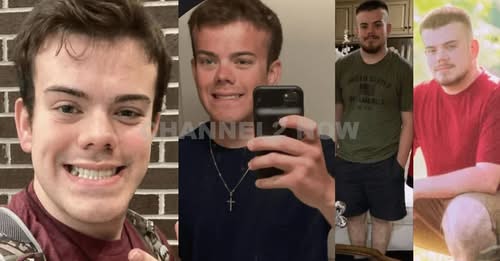Troubled Past, Tragic Present: Phoenix Ikner’s Downward Spiral Ends in Bloodshed at FSU
TALLAHASSEE, FL — Two men are dead, and a university campus is reeling, after a young man’s long and troubled history finally reached a breaking point. The name at the center of it all: Phoenix Ikner—a Florida State University student whose life was marked by emotional instability, legal entanglements, and a trail of warning signs stretching back years.
The incident, which unfolded earlier this week in a quiet campus building, was sudden and horrifying. Witnesses say there was no shouting, no altercation, no warning—just the sound of gunshots and the unthinkable realization that two lives had been taken. Authorities have not yet released the names of the victims pending family notification, but they have confirmed that both were male students at the university.
For many who knew Phoenix Ikner, the news was not entirely shocking—but it was devastating all the same. His story reads like a case study in systemic failure: a child of custody battles, mental health struggles, and fractured support systems. It’s a tale of red flags that were seen, acknowledged, and too often left unaddressed.
A Childhood in Turmoil
Ikner’s early years were marked by volatility. His mother served time for international child abduction after allegedly fleeing the country with him during a bitter custody dispute. The emotional trauma of being uprooted from his home and returned through legal force reportedly left lasting scars. Court documents later revealed that Ikner was diagnosed with several mental health conditions, including severe anxiety and mood disorders. Medication was prescribed—but, as noted in multiple reports over the years, it was not consistently administered.
As a teenager, Ikner bounced between schools, therapists, and guardians. At least one civil lawsuit was filed on his behalf over what his family described as “institutional negligence” and “emotional harm caused by improper care and oversight.” The lawsuit was eventually settled out of court.
The FSU Chapter
When Ikner enrolled at Florida State University, it was seen by some as a fresh start. By others, a risky experiment. Professors described him as smart, introspective, and unusually intense. Classmates noted that he often kept to himself—quiet but unpredictable, sometimes erratic in his behavior, and quick to isolate. At least two wellness checks were made during his time at FSU, one just last semester after he reportedly disappeared for several days without notice.
Still, no formal disciplinary action was ever taken. No involuntary holds. No criminal charges. Until now.
The Snap
What pushed Phoenix Ikner to allegedly take the lives of two fellow students remains unclear. Officials have not yet released full details of the attack, citing an ongoing investigation, but they’ve confirmed it was not random. Some early reports suggest the victims may have known Ikner in some capacity—possibly through a shared class or student group. But no motive has been formally established.
In a short press briefing, campus police chief Carla Ramirez said:
“This tragedy reflects a catastrophic failure to intercept a person in crisis. Our community is mourning, and we are doing everything possible to support those affected. But we are also asking: what more could have been done?”
A System That Missed the Signs
Now, the spotlight turns to the many institutions—family courts, schools, mental health systems, the university—that had glimpses into Ikner’s struggles but failed to piece together the full picture.
Mental health advocates say this case should ignite urgent reform.
“It’s not enough to prescribe medication and hope for the best,” said Dr. Allen Ferrow, a clinical psychologist familiar with similar profiles. “We need continuity of care. We need to monitor at-risk individuals over time—not just when they hit a breaking point.”
A Community in Mourning
As tributes pour in for the two young men whose lives were taken, FSU has announced plans for a campus-wide vigil and the establishment of a memorial fund in their names. Grief counselors have been made available around the clock, and students are being encouraged to come forward if they are struggling or if they noticed warning signs in anyone around them.
Because in the end, this story is not just about Phoenix Ikner. It’s about what happens when a troubled boy becomes a troubled man, and the world keeps looking the other way—until it’s too late.
Two families are now planning funerals instead of graduations. A campus has lost its sense of safety. And a community is left asking how many more lives need to be shattered before something changes.
Rest in peace to the victims. Your names will not be forgotten.
👉 Read the full timeline of Phoenix Ikner’s case, the early warning signs, and the institutions that failed him—coming soon.

Leave a Reply